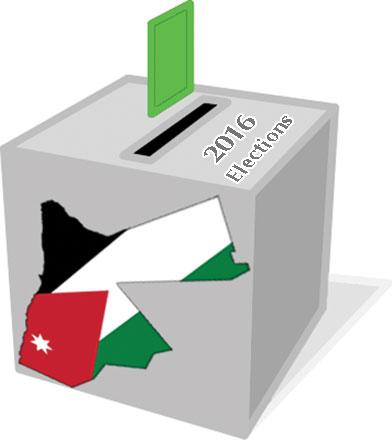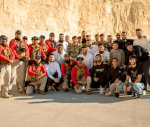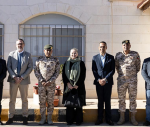You are here
Candidates in north ‘struggling to join election lists’
By Raed Omari - Jul 25,2016 - Last updated at Jul 25,2016
AMMAN — Despite electoral reforms, some candidates in the northern governorates say they are still struggling to form or join lists for the September 20 parliamentary elections without tribal support.
Although the idea behind the open proportional list system is to encourage partisan and ideological elections, candidates from Irbid and Jerash have told The Jordan Times that lists were still being formed according to tribal and regional affiliations.
“It is supposed to be an open proportional list, grouping candidates sharing the same ideology and political programmes, but what I see is the exact opposite,” said an Irbid 2nd District candidate, who is a member of the Jordanian Unified Front Party.
“Candidates, especially those who served in the 17th Parliament, only accept hopefuls with a strong tribal basis to be members in their lists,” he added, preferring to remain unnamed.
The candidate, who is a doctor, also said that “list leaders” would write pamphlets and brochures outlining a political agenda “while in their hearts they are tribal and regional”.
“If you belong to a small tribe, you will probably have no place on the strong lists,” said another candidate, who also requested anonymity.
The candidate, also from Irbid, said that candidates whose tribes have nominated them after winning internal elections stand a better chance of forming or being members in strong lists.
“Women are not allowed to vote in tribes’ internal elections. The government has proved to be more progressive than the tribes,” he said.
Some tribes across the country organise internal elections to select one member to stand for elections, to avoid tribe members competing with each other in the same district.
Another candidate, a pan-Arab nationalist, said he might withdraw his candidacy, citing the “impossibility” of forming a list of candidates with the same political leanings.
But other candidates were more hopeful, praising the new Elections Law and hailing its contributions to improving political life in the country.
“The new Elections Law is modernised and progressive, and has put an end to the influence of money and tribes as in previous elections,” candidate Ali Odeibat, from Jerash, said.
“Now, under the new law, the rich and those from large tribes might not make it to Parliament,” Odeibat added.
The parliamentary hopeful said he and two other candidates have formed a list, adding that members of the list share the same beliefs in a progressive and modern parliamentary culture.
In previous remarks to The Jordan Times, Independent Election Commission Chief Commissioner Khaled Kalaldeh said “it is all left to voters to decide who deserves to be an MP”.
“The government has worked hard and come up with a new law that is, to a great deal, progressive,” Kalaldeh, a long-time leftist politician, said.
The law was drafted by the government of former prime minister Abdullah Ensour, in which Kalaldeh was the political and parliamentary affairs minister.
Under the 2015 Elections Law, the number of Lower House members was reduced from 150 to 130 and voting is based on the open proportional list at the governorate or constituency level.
The law also stipulates that each list should include no fewer than three candidates and no more than the number of seats allocated for the constituency in which the list is competing.
Under the proportional electoral system, winning lists will be allocated seats according to the percentage of votes they received. The seats will be distributed to the ticket members with the most votes.
Related Articles
AMMAN — Minister of Political and Parliamentary Affairs Musa Maaytah on Wednesday said the government is keen to ensure the success of the u
AMMAN – Tribal and geographical considerations will continue to have a strong influence on Jordanians' voting decisions in the September 20
AMMAN — Election analysts and observers on Tuesday said that election results in Jordan this year might be weakened by what is termed as “tr
















